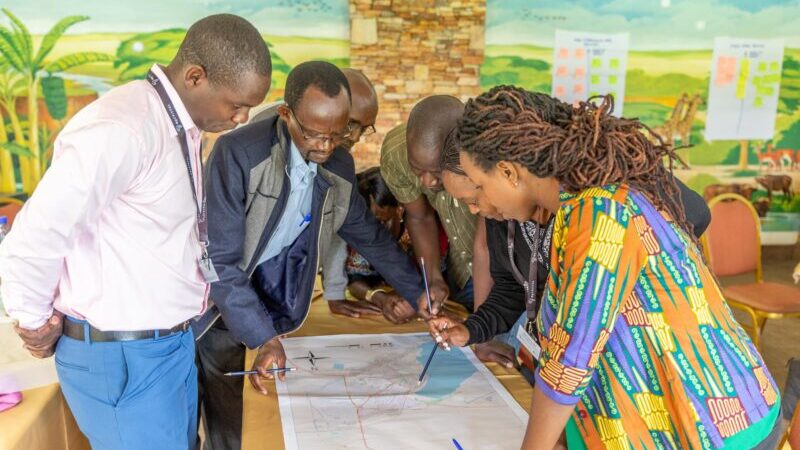In 2020, the Adaptation Research Alliance (ARA) was developed to strengthen international research efforts towards the most pressing needs for adaptation.
As a result of commitments from the UK’s Foreign Commonwealth and Development Office (FCDO), the ARA has been growing its international membership and will make its official launch at Cop26.
We spoke to Anand Patwardhan, co-chair of the alliance, and professor in the School of Public Policy at the University of Maryland, about how the ARA came about, the importance of research and collaboration in adaptation, and what the group plans to do after its launch.
Q: What inspired its founding?
Patwardhan: The ARA was formed in response to the scale and urgency of challenges faced by the world’s most vulnerable communities to climate change.
There is a need for action to adapt to these changes, yet there is a lack of evidence of what works and what doesn’t – and the pathways that lead to vulnerability.
The ARA wants to change this by driving international collaboration with different types of actors and the production of solutions that make a real difference on the ground.
Q: Why do we need an alliance for adaptation?
Patwardhan: Research is central to supporting effective climate adaptation. But too often there is a mismatch in the needs of communities and the intentions of researchers, funders and policymakers.
With the expertise of its global membership, the ARA has designed a set of Adaptation Research for Impact Principles as a framework for effective co-production of research that is locally relevant, and demand driven.
Q: What is meant by action research for adaptation?
Patwardhan: Action research for adaptation is a transformative approach to doing research and taking action. It means collaborating on all steps of the process, including research design and outcome generation all the way up to funding goals and decision-making.
It also allows solutions to be produced in an iterative way that evolves as new information is gained by on-the-ground learnings.
Q: Can you give an example?
Patwardhan: Think of a woman farming in Bangladesh. She’s the expert of her specific situation, but we can facilitate research that helps her better understand how that situation is changing due to climate.
We can connect her with researchers, funders, policymakers and development organisations that will collectively find measures that help her develop resilience. With the ARA, those solutions aren’t being identified for her, but with her and her community.
Q: Where does climate finance fit into the action research agenda?
Patwardhan: One of the barriers to accessing climate finance for adaptation is a lack of evidence around what works and what doesn’t to reduce the risks of climate change in different contexts, i.e. what are effective adaptation interventions.
The ARA aims to overcome this by advocating for investment in research that addresses these knowledge gaps and by strengthening how the impact of adaptation actions and interventions are measured.
We also encourage our members to track, learn and share from each other and the results of their adaptation research and actions.
Q: The ARA works with a variety of stakeholders – researchers, funders, policymakers, community members – why is it important to have a diverse collection of minds?
Patwardhan: The more voices and experiences that are shared, the closer we come to finding adaptation measures that work. The ARA encourages this by engaging with a diversity of actors and creating an environment of innovation and shared learning.
This also encourages each player to feel accountable and responsible, and that their expertise, funding and decisions form a valuable part of the process.
Q: What does ARA plan to do after its launch at COP26?
Patwardhan: Our launch at COP26 is just the beginning for the ARA. We have over 60 members from across the global adaptation space who are helping us drive a paradigm shift in how our work is done. We hope to keep that momentum up and grow even further.
At the same time, we aim to facilitate research projects among these partners where new, practical solutions that genuinely reduce the risks from climate change for the most vulnerable are developed.
The ARA launches at Cop26 on November 9.
This post was sponsored by Adaptation Research Alliance. See our editorial guidelines for what this means.
